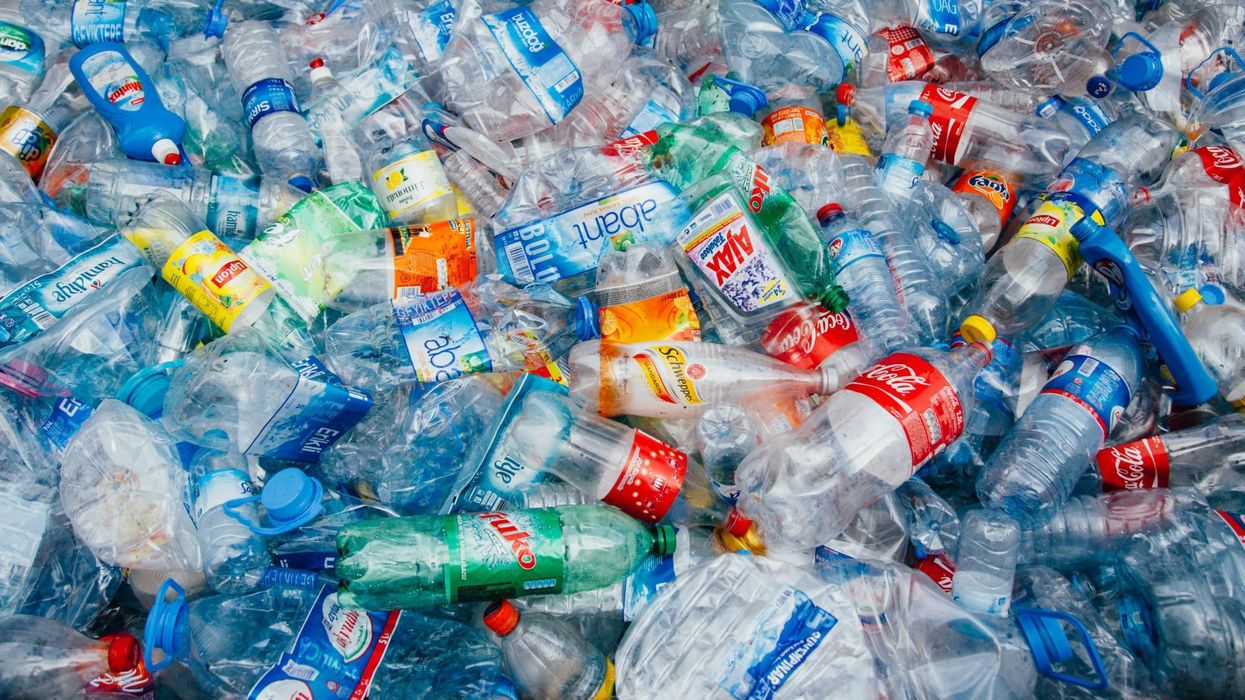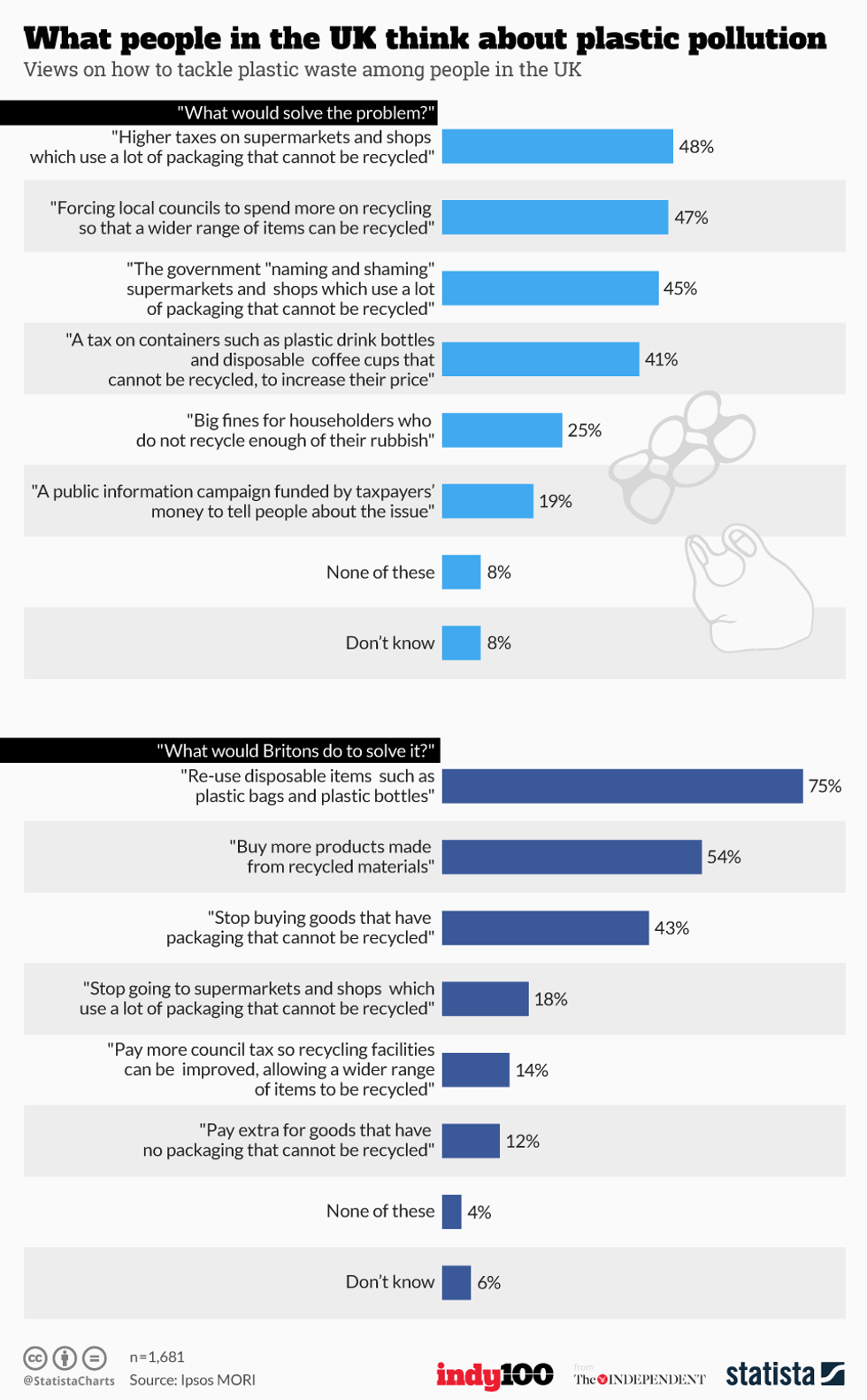News
Jake Hall
Apr 07, 2018

Picture: ISTOCK / Sami Sert
Plastic pollution is no joke. There are approximately 6.3 billion tonnes of plastic waste on Earth - and estimates even posit the idea that plastic will outweigh fish in the sea by 2050. But what does Britain think about it?
After all, cutting out plastic can be extremely difficult given supermarkets’ ongoing reliance on excessive packaging. Plus, most of us probably don’t seek out on how to help the environment. After all, just going about our daily lives is time-consuming enough – is it really realistic to assume we spend our evenings Googling research as opposed to watching reruns of The Chase?
Being aware of the problem is one thing, but actually figuring out how to fix it is another. Data collated by YouGov and Ipsos – compiled here into a handy infographic by Statista – shows that almost half of all Britons surveyed believe that supermarkets are largely to blame for plastic pollution, supporting a proposal to raise taxes for those using mostly non-recyclable packaging.

Other suggestions that ranked highly include making local councils spend more on recycling, pushing the government to ‘name and shame’ supermarket offenders and introducing a tax on disposable coffee cups. Some companies are already implementing the latter proposal: Starbucks recently trialled a 5p charge, or a 'latte levy', on takeaway cups in 35 of its London branches.
Interestingly, most respondents seemed to believe corporations were more at fault than individuals, with only 25 per cent supporting fines for householders refusing to recycle. Even less believed a public information campaign would help, indicating that the information is already out there, it’s just not being translated into genuine action.
In terms of what Britons could individually do to combat the problem, an enormous 75 per cent said they would re-use disposable plastic items, whereas 54 per cent said they would buy more products made from recycled ingredients. Another popular idea was to boycott goods made from non-recyclable packaging.
Things get trickier, though, when respondents were asked whether they would pay more. Only 18 per cent of respondents would boycott supermarkets – despite them often being cited as one of the worst offenders – whereas even less would be willing to spend more on council tax or individual items.
Reassuringly, only a handful of participants claimed to have no knowledge at all about plastic pollution. If all of us could find a way – even a small way – to turn this information into action, perhaps the problem could be actively tackled.
More: "This is disgusting": Children react to seeing plastic pollution in the ocean
Top 100
The Conversation (0)
x













